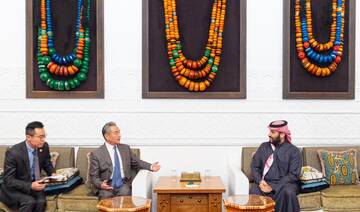Princess Haya Bint Al Hussein, Chairwoman of Dubai Healthcare City Authority (DHCA) and wife of Sheikh Mohammed Bin Rashid Al Maktoum, vice-president and prime minister of the UAE and Ruler of Dubai, yesterday set the foundation stone for the AED 400-million Dr. Sulaiman Al-Habib Hospital at Dubai Healthcare City.
The 200-bed facility that will take shape over an area of 175,000 square feet is projected to signal a massive shift in the UAE integrated health care industry.
The new Dr. Sulaiman Al-Habib Hospital at Dubai Healthcare City will include an integrated center for cardiac surgery comprising of diagnostic clinics and a cardiac catheterization unit. It will additionally feature emergency units for cardiac patients and more than 32 integrated intensive care units for all ages and various medical conditions (ICU, CCU, and NICU for newborn and preterm children).
Once complete, it will prove a strong addition to Dubai’s health care portfolio and significantly strengthen the Emirate’s health care infrastructure.
The facility will be fitted with state-of-the-art emergency departments, as well as surgical theaters, delivery rooms and hypnosis suites. The hospital will integrate an electronic filing system for the benefit of patients and to provide doctors with updated and easily retrievable medical history and pathology results.
Dr. Sulaiman Al-Habib, chairman of Dr. Sulaiman Al-Habib Group, said: “Our continuous success in the projects we implement, design and operate in the GCC region has set a benchmark among health care facilities in the Arab region. This has strengthened our ambitions and increased our responsibility toward our patients to continue providing the highest quality of medical care and services.”
Al-Habib assured that the new facility would endorse a unique model and serve as a distinct extension of the Group’s hospitals and centers in the GCC region. Leveraging latest developments in all medical specialties, the hospital is set to represent a quantum leap in integrated health care services provided in the UAE.
He added that the medical personnel attached to the Group are leading professionals who remain updated on latest developments in the implementation, operation and development of health facilities through participating in specialized forums and exhibitions.
Al-Habib added: “Our continuous keenness has resulted in several strategic partnerships with major international companies such as GE for diagnostic radiology devices, and Drager for medical gas. Stryker will provide the best types of beds at the new multidisciplinary hospital. We also share a strong association with Roche Laboratories of Germany and other medical companies that have a long tradition in this area.”
Princess Haya, together with Al-Habib and HE Raja Al Gurg, Vice-Chairperson of DHCA and HE Essa Al Maydour, director general of Dubai Health Authority and the DHCA Board Members, visited the facilities at the Dr. Sulaiman Al-Habib Medical Center.
Princess Haya was given a brief tour by Dr. Sulaiman Al Habib Medical Center’s medical director, Dr. Naji Yazbek, as well as other doctors at the facility, where She was shown the medical center’s Dental Department, including the latest dental machines from Sirona, and ophthalmology suites with Visumax, the latest eye vision correction technology in the Middle East.
Afterwards, Princess Haya was escorted to the Radiology Department, which includes the latest MRI and CT Scan Angiogram from GE, and lastly, and the Laboratory, where patients are able to do up to 160 different tests on just one blood sample.
Al-Habib also expressed his appreciation of the efforts and support extended by the Dubai Healthcare City Authority and Dubai Government. He particularly acknowledged their role in promoting concerted investments in the health care sector, adding that such initiatives are outcomes of professional strategic thinking.
Pointing out that the establishment of the new multispecialty hospital is a testimony to the enabling investment environment offered by DHCC, Al-Habib said the destination’s ambition to raise quality standards will eventually benefit the UAE residents as well as media tourism travelers.


Princess Haya sets foundation for Al-Habib Hospital
Princess Haya sets foundation for Al-Habib Hospital

Saudi crown prince receives written message from president of Tanzania

- The letter, about relations between the countries, is delivered by Tanzania’s foreign minister during a meeting with the Kingdom’s deputy foreign minister
RIYADH: Saudi Arabia’s Crown Prince Mohammed bin Salman received a written message on Tuesday from President Samia Suluhu Hassan of Tanzania about relations between their countries.
It was delivered by Mahmoud Thabit Kombo, Tanzania’s foreign minister, and accepted on the crown prince’s behalf by Waleed Elkhereiji, the Kingdom’s deputy minister of foreign affairs.
During their meeting at the ministry’s headquarters in Riyadh, the ministers discussed bilateral relations and ways in which they might be enhanced in all sectors, the Saudi Press Agency reported.
© 2025 SAUDI RESEARCH & PUBLISHING COMPANY, All Rights Reserved And subject to Terms of Use Agreement.













